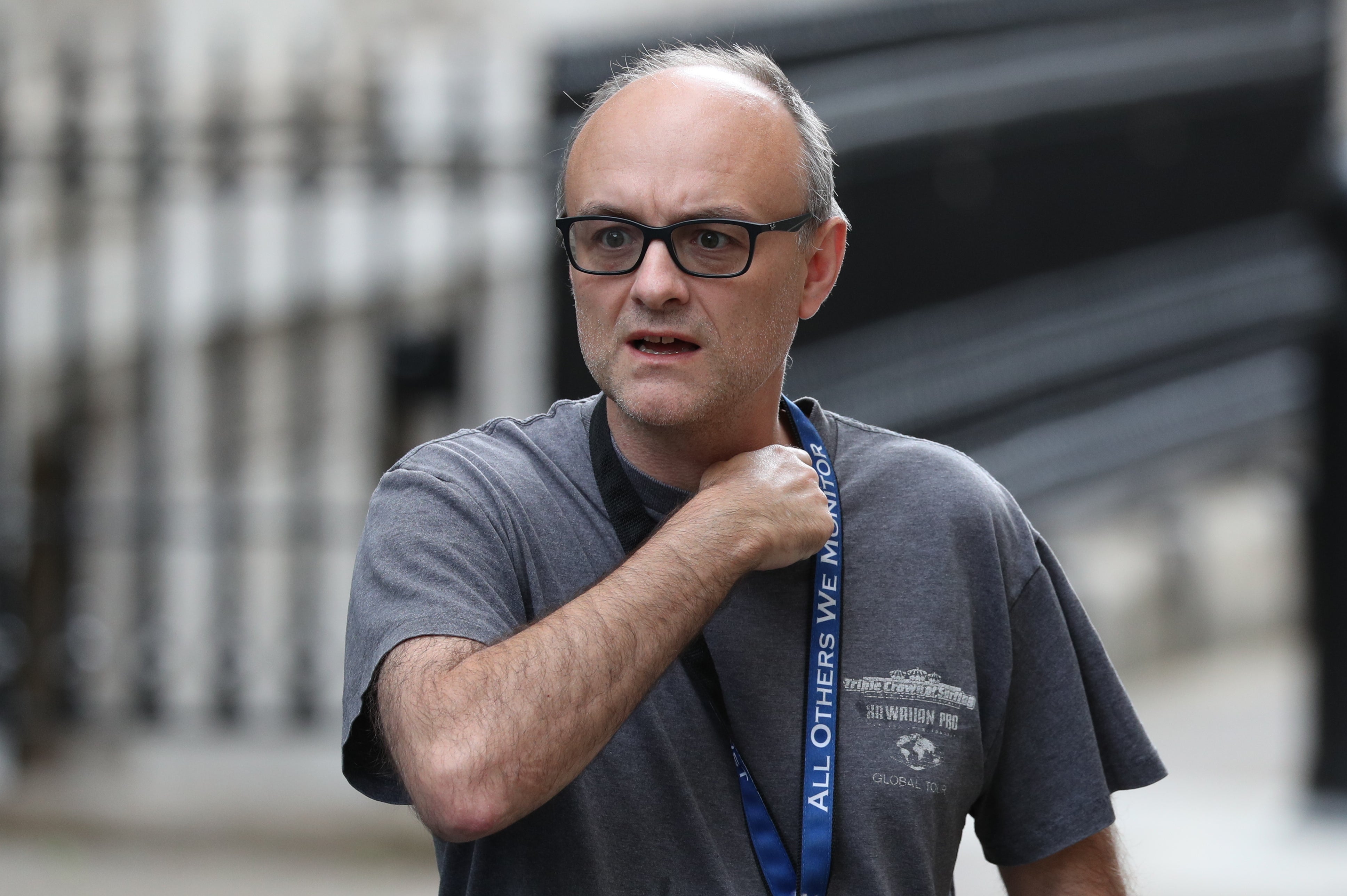Appeal court overturns ‘unlawful’ ruling over Covid contract for Cummings friends
No proof of bias in award of £550,000 contract for research on public health slogans

Your support helps us to tell the story
From reproductive rights to climate change to Big Tech, The Independent is on the ground when the story is developing. Whether it's investigating the financials of Elon Musk's pro-Trump PAC or producing our latest documentary, 'The A Word', which shines a light on the American women fighting for reproductive rights, we know how important it is to parse out the facts from the messaging.
At such a critical moment in US history, we need reporters on the ground. Your donation allows us to keep sending journalists to speak to both sides of the story.
The Independent is trusted by Americans across the entire political spectrum. And unlike many other quality news outlets, we choose not to lock Americans out of our reporting and analysis with paywalls. We believe quality journalism should be available to everyone, paid for by those who can afford it.
Your support makes all the difference.The Court of Appeal has overturned a ruling that a Covid contract given to a company whose founders were friends of former Downing Street adviser Dominic Cummings was unlawful.
Last year, the High Court ruled that the Cabinet Office’s decision to award a £550,000 contract to market research firm Public First was unlawful as it gave rise to “apparent bias” because other agencies were not considered.
But today’s ruling concluded that a “fair-minded and reasonably informed observer” would not see the decision as biased.
Mr Cummings said it was “good news” the Court of Appeal had “seen sense and said I behaved lawfully”.
He said the case showed the need for the government to urgently put in place “clear procurement rules” for emergencies.
Campaigning organisation the Good Law Project, which brought the case over the links between the firm’s founders and Boris Johnson’s former adviser as well as then-Cabinet Office minister Michael Gove, said it will appeal the decision at the Supreme Court.
Public First was given a contract for over £550,000 in June 2020 for focus groups and other research – including testing public health slogans such as “Stay at home, Protect the NHS, Save lives”.
In the original ruling, Mrs Justice O’Farrell found that the “apparent bias” was not due to the existing relationships between Mr Cummings and Public First but because of a failure to consider any other research agency and record the objective criteria used in the selection.
However, in a judgment on Tuesday, Lord Chief Justice Lord Burnett, sitting with Lord Justice Coulson and Lady Justice Carr, found that the original judgment was “unprecedented”.
In its ruling, the court said: “The fair-minded and reasonably informed observer would not have concluded that a failure to carry out a comparative exercise of the type identified by the judge created a real possibility that the decision-maker was biased.”
Writing on Twitter, Mr Cummings said the Court of Appeal ruling was a “total vindication for my decisions on moving super speedy on procurement to save lives”. He said that during the opening months of the Covid pandemic, he was having to “move very fast in totally opaque legal miasma”.
In a reference to Good Law Project chief Jolyon Maugham, he added: “Lord Chief Justice crushes kimono-fox-killer.”
In a statement, the Good Law Project said: “We haven’t lost a case in court since 2019. But you can’t win everything forever – especially when you fight the most difficult cases in the most difficult terrain.
“We don’t think the Court of Appeal is right. And so we plan to ask the Supreme Court to hear an appeal.
“We believe there is proper and widespread public interest in the extent to which the law restrains public servants from awarding valuable public contracts to their friends without adequate safeguards to protect against the risk of bias.”
Additional reporting by Press Association
Join our commenting forum
Join thought-provoking conversations, follow other Independent readers and see their replies
Comments